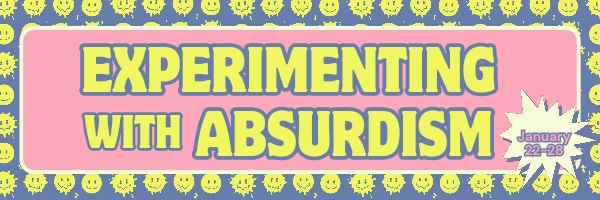January 22 - Congratulations, You Played Yourself
Thought Experiment: What are you taking seriously lately? Think of one principle you've been clinging to that might be on shakier ground than you thought. Do your actions match your thoughts and words? And most importantly, is it really that serious, bro?
“The first principle is that you must not fool yourself — and you are the easiest person to fool.”
Richard Feynman, "Cargo Cult Science", adapted from a 1974 Caltech commencement address; also published in Surely You're Joking, Mr. Feynman!, p. 343
In this speech, physicist Richard Feynman takes issue with what he calls “Cargo Cult Science” calling out fields like sociology and psychology. He likens these alleged pseudosciences to a group of people in the South Seas:
“During the war they saw airplanes land with lots of good materials, and they want the same thing to happen… So they’ve arranged to make things like runways, to put fires along the sides of the runways, to make a wooden hut for a man to sit in, with two wooden pieces on his head like headphones and bars of bamboo sticking out like antennas—he’s the controller—and they wait for the airplanes to land. They’re doing everything right. The form is perfect…. But it doesn’t work. No airplanes land. So I call these things Cargo Cult Science, because they follow all the apparent precepts and forms of scientific investigation, but they’re missing something essential, because the planes don’t land.”
He says the thing that’s missing is a sort of integrity that is to be found in “utter honesty”. Scientists should be reporting all possibilities that might invalidate their experiment, all the facts that disagree with their theories.
He says we have to contend thoroughly with how we might be wrong, but…i say bro YOU FIRST. In this speech, he advises us not to fool ourselves, and not to lose integrity, but it doesnt seem like he thinks this applies to his theory here. For example, he never even considers that there may be a real value to fooling ourselves. Maybe the cargo cult runways of the South Seas didn’t land planes but still led to something new and interesting.
Feynman ducks this contradiction in various works by adamantly declaring that he’s avoided the humanities and expressing his distaste for the non-scientific, but somehow he can’t seem to avoid it. In his work "The Pleasure of Finding Things Out” he mocks philosophers when telling a story about how he and his son were reading Spinoza: “There’s a tendency to pomposity in all this, to make it all deep and profound…it isn’t the philosophy that gets me… if they’d just laugh at themselves…if they’d explain that this is their best guess.” I mean, touché.
In general, I find his advice to laugh at ourselves widely applicable. All this concern over fooling oneself is laughable. As if deep down we could ever really know The Truth! Feynman even admits he’s not looking for ultimate laws of physics, but “just looking to find out more about the world…” through science. The funniest thing about Feynman is that he tells us again and again that doesn’t care for the philosophical, but what he’s best known for writing that is far more philosophical than scientific. Yeah, sure he won a Nobel for Quantum Electrodynamics, but more people have read Surely You're Joking, Mr. Feynman! than the research that put him on the map - and for good reason.
He’s really onto something about integrity, and modern “cargo cult science” is trying to figure it out. The problem is that his call for scientific integrity is not something that can be objectively agreed upon. This concept can be hijacked to build the perception of integrity, but integrity is personal. It can’t be broadly applied or measured to the satisfaction of a particle physicist.
I think Feynman makes a few mistakes. He claims to dislike philosophy but engages in it often; he criticizes “cargo cult science”, but fails to understand the value of building shitty little runways (like what he does in all of his writing); in fact, he builds up a cargo cult concept of “integrity”, but doesn’t see that from another perspective, this might be exactly what he lacks. The moral of the story is: Don’t fool yourself into thinking you can avoid fooling yourself. I mean, Surely You're Joking, Mr. Feynman!
I had so much fun writing this first reflection, but I’ve been putting out a podcast and dealing with Nashville’s storm of the century this week, so I didn’t have a ton of time to work on this series, and I woke up this morning in a panic thinking
Girl, you cannot bail on this series 4 weeks in.
So I sat down and started clicking away, but when I finished I laughed at myself thinking, I’m fucking playing myself, thinking that I could actually rewrite this entire book in the time frame allotted. And I do this all the time. I have a video essay on Determinism sitting in a file, that I refuse to edit or rewrite/record. It just doesn’t feel right to be rushing this, and everything I do now is much more of an art than a science, so the vibes have to be right.
Today, the vibes feel like me writing as much as I can, and then when the fucking whisps leave, I’m out. This is part of my personal concept of integrity. What’s most important to me is that I give you something that stays with you throughout the week. If that means I don’t get to rewrite the whole week’s reflections before Sunday, it’s more important to me that I leave you with something high-value than high volume. So, I’m going to recommit to writing at least ONE solid reflection, and the rest will be bonus.
Plus, I’ve been thinking that organizing the reflections into a weekly concept might be an interesting idea. This week would certainly be challenging assumptions.
January 23 - Loving Ambiguity
Thought Experiment: What ambiguous situation have you been attempting to rid yourself of lately? Consider something that’s unresolved in your life and try to see if you can accept the ambiguous nature of it for a while. Most things resolve themselves, but what happens if you just co-exist for a while with a lack of clarity around this issue? This is not a call to apathy, but rather an understanding that you may not ever be fully clear on something, but you have to move forward. Let go of the assumption that you need to resolve ambiguity or even contradiction.
“Man must not attempt to dispel the ambiguity of his being but, on the contrary, accept the task of realizing it.”
― Simone de Beauvoir, The Ethics of Ambiguity





